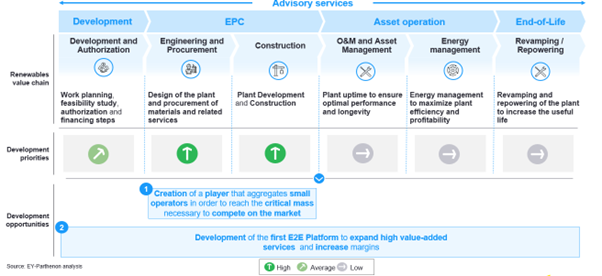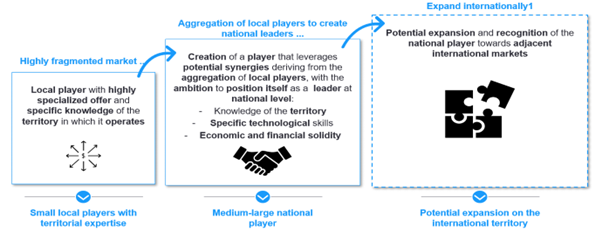Italy stands at the cusp of a renewable energy revolution, with ambitious targets set to transition towards a more sustainable energy mix by 2030. As the nation commits to reducing its carbon footprint, the role of Engineering, Procurement, and Construction (EPC) players becomes increasingly critical: while the renewable market is poised for rapid expansion, the current EPC deployment capacity needs to quickly evolve and grow to support progress towards Italy's green objectives.
The Italian renewable energy sector has seen a resurgence in recent years, driven by global environmental and geopolitical concerns as well as local policy initiatives such as the National Integrated Plan for Energy and Climate. EPC contractors are pivotal in this landscape, offering turnkey solutions that are essential for the timely and efficient rollout of renewable projects. However, the market's ability to meet rising demand is under scrutiny.
Forecasts suggest that Italy's renewable energy capacity could double by 2030, with solar and wind power leading the charge. This growth trajectory is supported by the declining cost of renewable technologies and a favorable regulatory environment. However, the anticipated surge in project deployments raises questions about the readiness of the EPC sector to handle the influx.
Installed capacity as of June’ 2024 and 2030 Targets (GW)




